Anglican Catholic Mission Community survivors reveal how they escaped secret cult
Jacob and Lena were married in a union arranged a cult leader, who then bizarrely kicked them out of the cult two days later after emptying their bank account.
News
Don't miss out on the headlines from News. Followed categories will be added to My News.
The woman and her little boy trekked through the red dirt of bushfire-scarred Australian scrub and made for the creek.
It was here that Kaylee had bathed and washed the grit of hard work from her skin.
But this day it was her escape route – a landmark that she followed until dark set in, until she found a road.
From there she flagged down a car. That car took her to town, to a women’s shelter.
It was her first day of freedom, but the clutches of the Anglican Catholic Mission Community (ACMC), then known as the Jesus People, would not be released so easily.
Farrah made the decision to leave after a marriage proposal from the leader, reshan Daniel Landy-Ariel. A friend who secretly drove her to the bus station, with only the change in her pocket to buy her ticket, would have been beaten for his betrayal.
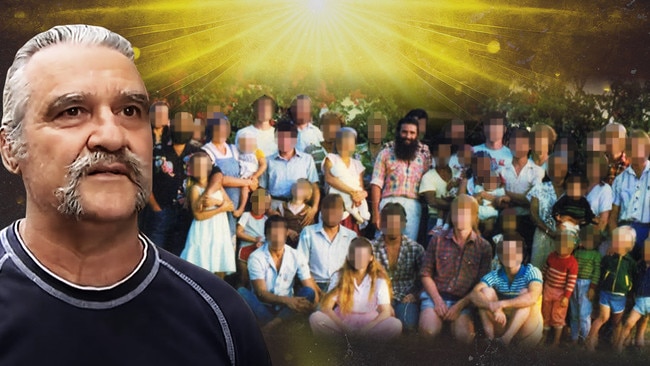
Jacob and Lena were married in a union arranged by Daniel – who then inexplicably expelled them two days later. Jacob had given ten years of his life – and income – to the cult. That day he’d checked his bank account to find it empty.
Simon left with the clothes on his back and an outstretched thumb. He’d hitchhike all the way from the group’s Parkes property back home to his worried parents in Queensland – and his babies who he’d not been allowed to see.
Kaylee left in 2008 but will forever be tied to the community, many say is a cult, by the family she left behind, family who remain there to this day.
For 30 years, she lived in the strict religious order on at least two of the many properties it owns across Queensland, New South Wales and overseas.
They are communes where men, women and families live together, growing or sourcing discarded fruits and vegetables, working in trades and pooling incomes to exist together.
In reality, it all belonged to one man – the leader, or “reshan”– Daniel Landy-Ariel.
CULT FOUNDER
Daniel started the Jesus People of North Queensland, in the 1970s, initially by setting up a Christian coffee shop in Cairns and then establishing a communal house. In 2010 the Jesus People became the ACMC.
He attracted hippies. Young, lost souls looking for an alternative lifestyle.
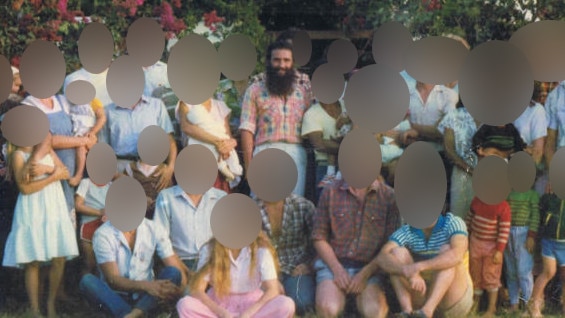
On the surface, there was much to draw people in. An idyllic, communal life in tropical North Queensland. A life far removed from the corporate rat race. No responsibility other than whatever role the group gave you. A schedule set out by somebody else. A roof, three meals. Free-range children raised communally by the group.
But the reality was far more complex. Those who joined were required to hand over all their possessions – even their name. Members were required to take on a biblical name.
Men ruled. Women could not hold positions of authority. They could not question or have control over their own bodies. Birth control was banned. Head coverings were mandatory.
The group did not believe in greed or waste and so sourced food by bin diving – collecting discarded fruits and vegetables.
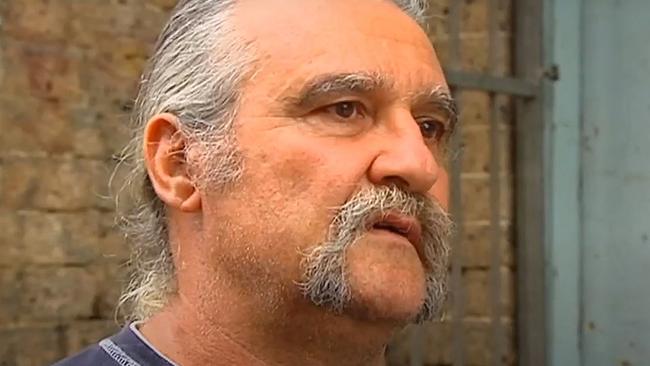
Many members were encouraged at the time to go on the “dole”, with the government payments funnelled straight to Daniel. These payments, combined with whatever possessions new members handed over, helped him amass a multimillion-dollar property portfolio.
In the years that ensued, the group would see a rebranding , a leadership coup and more than one court battle.
But today, they remain dedicated to communal life and the rules that Daniel Landy-Ariel penned.
DRAMATIC ESCAPE
Kaylee joined the Jesus People around 1980, moving into the North Queensland commune.
She would marry, have many children and raise most of those children to adulthood within its walls, and within its rules.
She declined a request to be interviewed, but a man who helped her leave, Steve Perks, said she suffered greatly during her time inside.
Mr Perks said he got to know members of the Jesus People when they joined a local basketball league he’d set up.
Members of the Herberton community had just built a basketball court on their commune grounds and wanted the children to learn the rules.
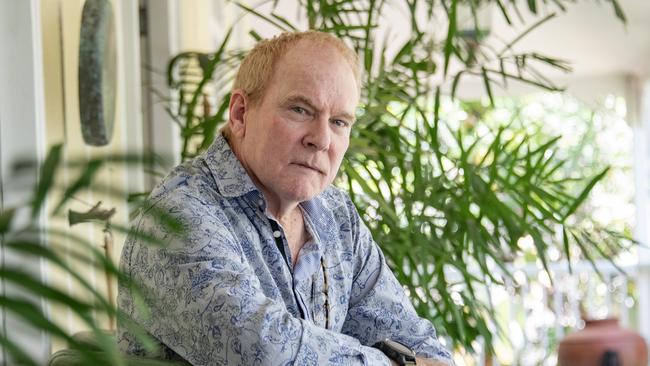
He said one day he received a call from Kaylee asking him to drive her from an Atherton women’s shelter to a government office in Cairns.
“So I’m thinking, well, there’s been a problem, a big problem,” Mr Perks said.
“She’s had to run through the jungle and down a river … with a child that was about nine or 10 or something at the time. She couldn’t take any of the others.
“Obviously she doesn’t escape from a place like that if it’s all Garden of Eden. And it was disgusting. It was a horrible place to live for a mother and it was worse for her than anyone else because her children had disabilities.
“Some of the stories just shocked anyone who’s ever heard them, what she was put through.”
He said on one occasion, Kaylee was punished when her toddler-aged son didn’t make it to the toilet in time.
“So the punishment for that (was) whoever the king was in charge that day went and grabbed the tin that they used in their outside toilets (and) threw it all in her bed.
“What lesson do you learn from that?”
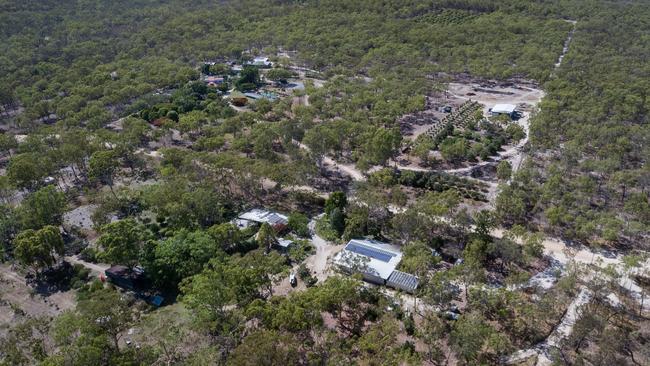
The woman also claimed in court documents viewed by The Courier-Mail that she was subjected to multiple instances of violence within the community – including being punched in the back of the head, kicked, hit and her hair pulled.
Farrah was in her early 20s when she first came across the Jesus People.
“I was just a naive girl … I had an idealistic desire to live in a harmonious community of people of faith, people who were connected to the earth and connected to some kind of spiritual belief system,” she said.
“I was just at a loose end within my life and looking for something more meaningful … (and) in some way that was there.
“I suppose that’s partly why people stay there, because it does provide that sense of community, or extended family and routine and safety from the outside world, which can be distracting and feel very unsafe, especially for women.”
DOMESTIC VIOLENCE
As a single woman in a very closed community, Farrah soon drew the interest of the single men.
Young fertile women were expected to marry and have children. That was not Farrah’s intent in joining, and so she showed no interest in the single men.
“Women … basically they were considered chattel … just subordinate to men,” she said.
“And they were continuously told they were subordinate. So if they showed anything that was considered disrespectful to the men (they would be punished).”
Farrah said on one occasion she was working in the kitchen with a heavily pregnant woman when the woman’s husband came in.
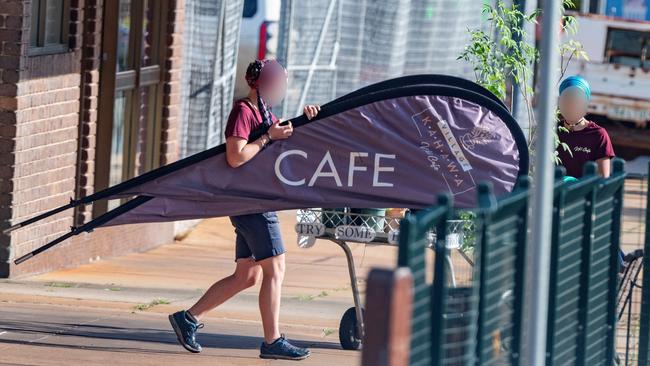
The man had been waiting for his wife to bring him a hot drink and it had apparently taken too long to arrive.
“So he took it upon himself to just slap her to the ground and walk back out,” she said.
“I picked her up off the ground, completely shocked, because I hadn’t seen that in my whole life.
“This was one of the guys who was basically always reading the Bible, always presenting himself as an expert on scriptures but at the same time making disgusting jokes about women amongst the men.”
On another occasion, a woman was beaten so badly she had to be hospitalised with serious injuries.
She had been punished for going to sleep with her children in a tent as they camped on the property instead of in her husband’s bed.
“There were women that were punched, properly punched, pushed down stairs, pushed to the ground, slapped.
“I know of one woman whose head was slammed into a tree. It wasn’t an everyday event but the threat was there.
“The women were in fear of some of the men. Some of the men were definitely more violent than others, as was their right to keep their women in line.”
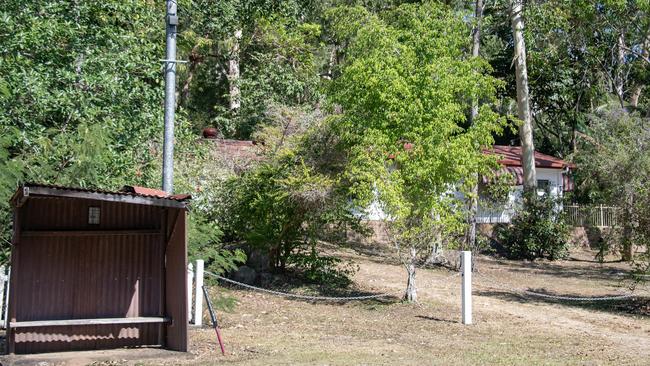
Farrah said she believed the violence was generally a product of the leadership under Daniel Landy-Ariel and how community members were taught to view women.
“Leadership means basically control. Coercive control and fear. Controlling through fear and threat of punishment, or threat of being exiled from the group. That was always held over people’s heads,” Farrah said.
Women were allowed soap and shampoo, but no beauty products. Clothes could only be bought from opportunity shops and women would sometimes find brightly coloured fabric to sew into skirts and headscarves.
Sometimes a lipstick or mascara would be smuggled in and the women would share it in secret.
POLYGAMY PROPOSAL
Farrah had been in the community for more than a year when she was moved to the Glenwood property – the then-home of the Reshan.
“Daniel just wanted to collect as many wives as possible. To amass wives and children was seen as a proof of your virility, proof of men’s virility and status,” she said.
“It was not really ideal for any single woman to be single for too long because you were there to meet men’s needs.
“So what they did to change that situation is they sent me to the commune where Daniel was, so that I could be given, you know, I could be wooed by him, I suppose.”
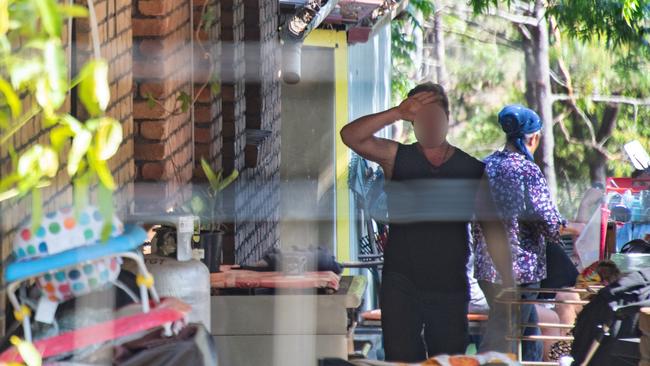
He sent the other community members away on the day he proposed, telling her if she refused, she would be out of God’s grace.
“(He said) you will be at the mercy of all the demonic realm out of this property. You will be without a covering over your head of a husband. And at that point, I just didn’t answer him because I knew there was no one else (around) … if he decided to be physically aggressive to me, there would be no help for me.
“I just shut my mouth and decided at that moment that I was going to get the hell out of there.”
She convinced a man from the community to drop her at a bus stop. She believes he would have been beaten for doing so. She left with the clothes she was wearing and enough change to buy a bus ticket.
Jacob, who spent more than 10 years with the group in its communities in North Queensland, and in Parkes and Redfern in New South Wales, acknowledges it was a very different experience for women and children.
“With the whole cult setup, it’s alright to subject yourself to something like that, but once you have kids inside it, they don’t really have a choice,” he said.
Jacob met a member of the Jesus People as a young man fruit picking in North Queensland. For a while, the group was what he hoped it would be – a commune where everyone shared and worked together.
“It probably did me a lot of good at the time. It was very disciplined, it was sort of like joining the army almost,” he said.
“You kind of get up, you exercise, you work hard all day. And everything was just organised. You didn’t have your own life. You’re basically told what to do constantly.”
But he said the downside was living at the whim of Daniel. Community members were taught the outside world was evil and frightening. The community was the only safe place.
“You’d be very afraid of saying the wrong thing,” he said.
“You could say something just in conversation and he’d absolutely hammer you … and that was sort of scary, your world being dependent on this guy.”
He said Daniel’s attitude to women was “strange” and he seemed intent on collecting as many wives as possible.
He’d had his eye on a beautiful young woman, but when that woman started becoming close to Jacob, Daniel got on the front foot. He came to Jacob with a photograph of a woman overseas and suggested they marry.
Jacob prayed on it, opened the Bible, and landed on a passage that seemed to send him a message of reassurance – he agreed.
Lena had only been in the group for three months when she met Jacob.
She was living in South Asia when she met two men from the Jesus People. They were in the country so one could marry a woman and bring her back to Australia.
Lena and two of her sisters would end up joining the community, only for Lena, her time with the group at one of its Sydney properties would be short lived.
“Coming from overseas, you don’t know what people are like … (it’s a) cultural shock. You’re trying to figure people out,” she said.
Lena described herself as a “ratbag” who got into trouble for not following the rules. She said men in the community would tell her off for not wearing a headscarf, or not showing enough dedication to reading the bible.
But incredibly, her arranged marriage to Jacob would be a happy and lasting one.
“When I was married, my sister got pregnant. She was three months pregnant. She was starving. For us, food was the hardest part,” she said.
“It was very difficult. Even if a woman had to get pads and things like that, you needed permission to buy bloody pads. For me, it was too controlling.”
KICKED OUT
Two days after their wedding, they were told to leave.
Jacob believes their eviction was because Daniel still saw him as a potential interference in his gaining the other woman as his wife.
Daniel married that woman soon after.
“We were kicked out and my account was empty. We couldn’t even buy a bloody drink,” Lena said.
“The morning (before) my husband got paid and we put the card in and we didn’t have any money. They’d taken it all out the night before.
“We went straight to my mother-in-law’s house.”
Lena has remained in contact with other people who have left the community and has an open door for women who escape its control.
“I will always open up the door for a woman who comes out because I know what they go through,” she said.
“When they come out, they’re very confused. They just don’t know where to go … some of the women I would say don’t know how to even get cash out. It’s a man’s rule. Men run the community.”
It was the late 1970s when Simon, who had just enlisted in the army, travelled to North Queensland to see his brother.
His brother had recently become tied up with the Jesus People and Simon had planned to bring him home.
Instead, he joined himself, drawn to the idea of communal living, of sharing and togetherness.
“When I first started, there was a lot more freedom and it was a lot more sincere,” he said.
But Daniel soon became more zealous about his religious doctrines and the rules they must live by.
“And then you weren’t allowed to read anything outside, or any media outside (you) just read the books they wanted you to read,” Simon said.
“He didn’t actually say he was a prophet or an apostle but he kind of inferred that. He reckoned that when he got converted he saw an angel … who came down and told him to share the gospel … that he was close to God.”
Simon said he was required by the group at the time to go on the dole and has no idea how long he received unemployment benefits for and that he’d been given no access to the payments.
He left after more than 10 years – penniless and with no real-world skills – after his bride from the community left with their children to stay with his parents.
“I just felt I loved the kids, it’s not right,” he said. “I ended up leaving. I’d had enough.”
Do you have a cult story or know anything about the ACMC? Contact kate.kyriacou@news.com.au
*names have been changed
Read related topics:Prayed Upon


